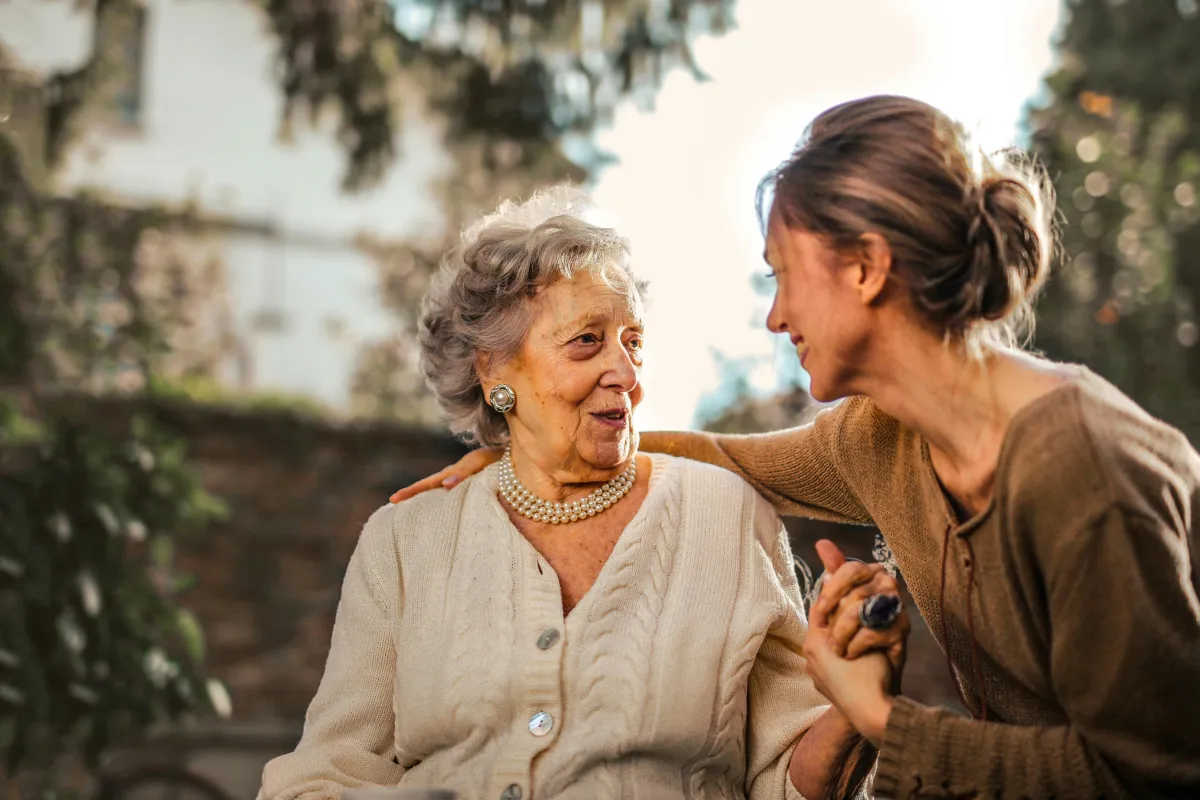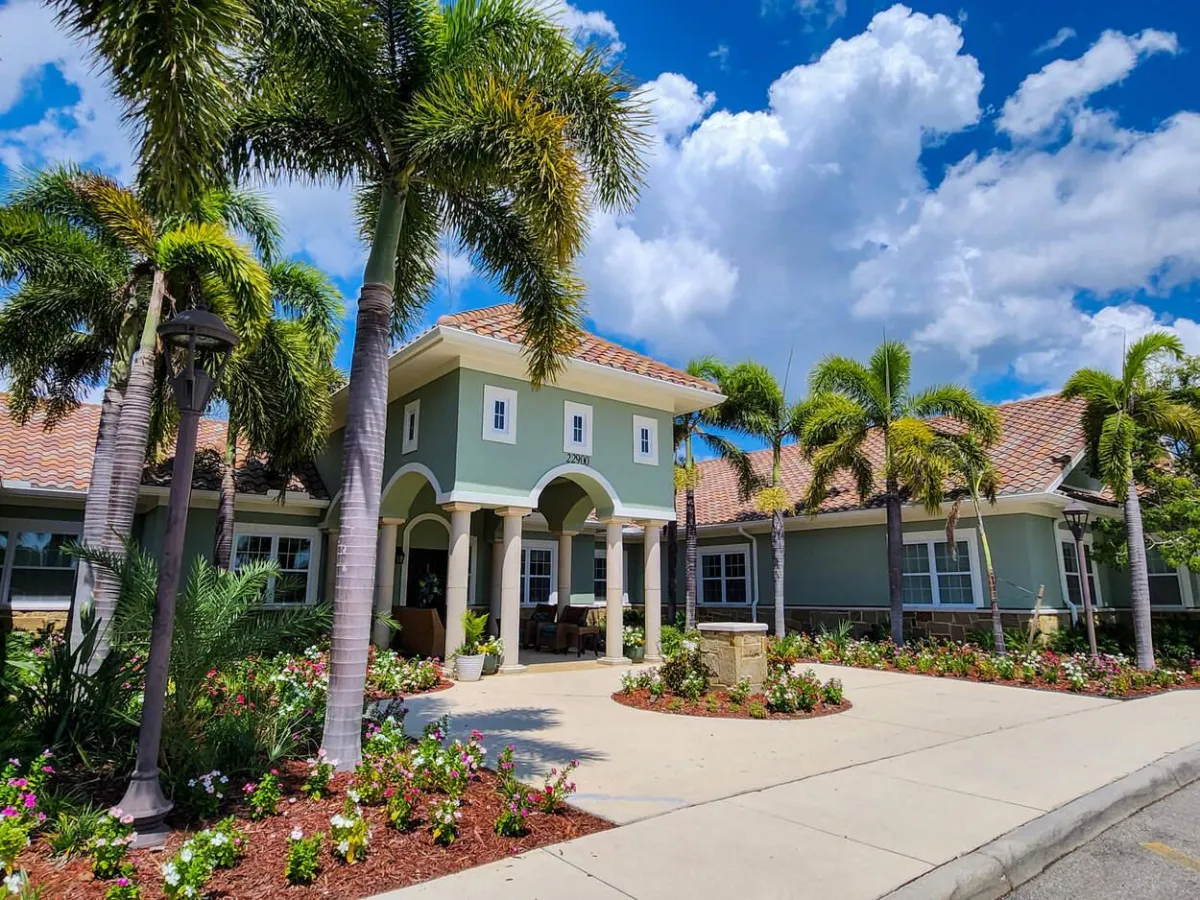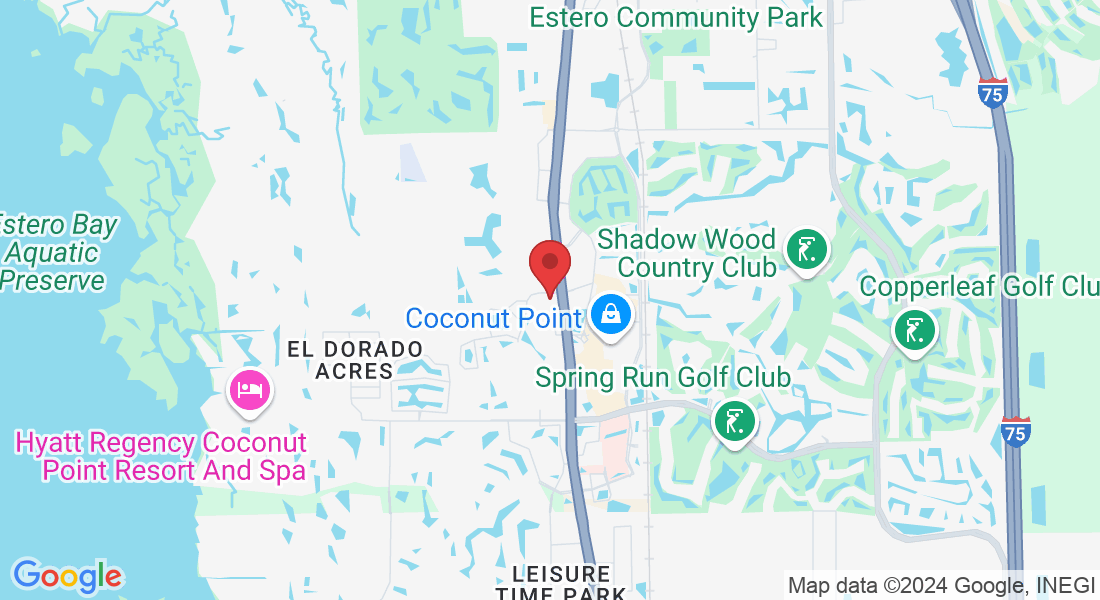Call Us: (239) 427-1455
This site is for families seeking memory care services. For employment inquiries, visit our Indeed page.
Memory Care Resources
Enjoy these articles on finding the right care for your loved one

The Key to Senior Memory Care
Memory care communities are a crucial pillar of support in the lives of seniors with memory impairments. They provide a safe environment tailored to meet their unique needs.
One of the most important aspects of this care is the social environment. Feeling like residents have a sense of community in their memory care community is vital for emotional and mental well-being. Regular social involvement can even slow the progression of memory loss.
However, facilitating social interaction in such settings can be challenging. It requires a deep understanding of memory care community requirements and the specific needs of each resident. Learn more as we delve into the importance of social and community interaction in memory care communities. We'll explore how it benefits residents and what strategies are used to promote it.
Understanding Memory Care and Social Needs
Memory care communities are designed for individuals with memory impairments, such as Alzheimer's and other forms of dementia. These communities provide specialized care, including medical support, safety measures, and structured routines.
But beyond these basic needs, socialization is a key aspect of care. Regular social interaction can improve cognitive function, maintain communication skills, and enhance overall quality of life. It's not just about keeping residents busy; it's about fostering a sense of community and belonging.
The Emotional and Mental Benefits of Regular Socializing
Regular interaction with others can help alleviate feelings of loneliness, depression, and anxiety, which are common among individuals with memory impairments.
Engaging in social activities can also stimulate the brain, helping to slow the progression of memory loss. It can provide a sense of purpose and enjoyment, enhancing the quality of life for residents.
Moreover, socialization can lead to improved physical health outcomes. Regular interaction can lower blood pressure and reduce the risk of chronic diseases.
In essence, a sense of community and camaraderie is not just beneficial, but essential for the overall well-being of memory care community residents. It's a vital part of comprehensive care that goes beyond medical needs.
How Memory Care Communities Promote Community
Memory care communities are designed with specific requirements to promote social interaction among residents. These requirements often include programs and amenities that encourage engagement and foster a sense of community.
For instance, communities may offer a range of socialization opportunities, such as group meals, games, music therapy, and exercise classes. Staff are trained to facilitate these activities and ensure that all residents feel included and engaged. The goal is to create a safe and secure environment that encourages residents to interact without fear of getting lost or harmed.
How Social Activities Can Slow Memory Loss Progression
Engaging in social activities can have a profound impact on the progression of memory loss in seniors. Regular social interaction can stimulate cognitive function and help maintain communication skills, which are often affected by memory impairments.
Activities such as group games, music therapy, and shared meals not only provide enjoyment but also challenge the brain in different ways. This mental stimulation can slow the progression of memory loss and improve the overall quality of life for residents in memory care communities.
Overcoming Isolation in Memory Care Settings
Isolation can lead to increased feelings of loneliness, depression, and anxiety in seniors with memory issues. Memory care communities are designed to combat this isolation by providing a community environment and regular social interaction.
Through group activities, shared meals, and common spaces, residents are encouraged to interact with each other. This sense of community can significantly reduce feelings of isolation and improve the emotional well-being of seniors in memory care communities.
The Role of Staff in Facilitating Social Interactions
Staff at memory care communities play a crucial role in promoting socialization among residents. They are trained to facilitate engagement and interaction, ensuring that all residents feel included and valued.
In addition to organizing group activities, staff members also provide personalized care plans. These plans often include social goals tailored to individual preferences and abilities, ensuring that each resident's social needs are met. This personalized approach to socialization is a key aspect of senior memory care.
Family Involvement and Its Impact on Social Environment
Family involvement in social activities can greatly enhance the quality of life for memory care residents. Regular visits, participation in activities, and maintaining open communication can provide emotional support and a sense of familiarity.
Moreover, memory care communities often offer training for families. This helps them understand how to effectively socialize with their loved ones who have memory impairments. By fostering a strong connection between residents and their families, memory care communities can create a supportive and engaging social environment.
Designing Memory Care communities for Optimal Social Engagement
The design of memory care communities plays a crucial role in promoting social interaction. Common areas, outdoor spaces, and even the layout of individual rooms can encourage residents to engage with each other and their environment.
Safety and security are also paramount. Memory care communities should provide environments that encourage residents to interact without fear of getting lost or harmed. This sense of safety can foster more frequent and meaningful social interactions among residents.
Innovative Programs and Activities to Encourage Socialization
Memory care communities often offer a range of innovative programs and activities to encourage socialization. These may include group meals, games, music therapy, exercise classes, and even pet therapy or art therapy. These activities not only provide opportunities for interaction but also stimulate cognitive function and maintain communication skills.
In addition, memory care communities may partner with local organizations or use technology to provide additional socialization opportunities. For instance, video calls can help residents stay connected with loved ones, while volunteer programs can bring new faces and experiences into the community.
Measuring the Success of Social Opportunity in Memory Care communities
The success of socialization programs in memory care communities can be measured in various ways. One of the most common methods is through regular assessments of residents' cognitive function, communication skills, and overall well-being. These assessments can help determine whether socialization activities are having a positive impact on residents.
In addition, feedback from residents and their families can provide valuable insights into the effectiveness of socialization programs. This feedback can help communities adjust their programs to better meet the needs and preferences of residents, ultimately enhancing their quality of life.
Conclusion: The Holistic Impact of Social Interaction on Memory Care Residents
In conclusion, a positive social environment plays a vital role in the overall well-being of residents in memory care communities. It not only helps slow the progression of memory loss but also improves emotional health, communication skills, and quality of life.
Memory care communities must continue to prioritize community alongside their care plans, offering a variety of activities and opportunities for interaction. By doing so, they can provide a holistic approach to care that truly enhances the lives of their residents.

Gulf Coast Memory Care
(239) 427-1455
22900 Lyden Dr, Estero, FL 33928
AL# 12921





